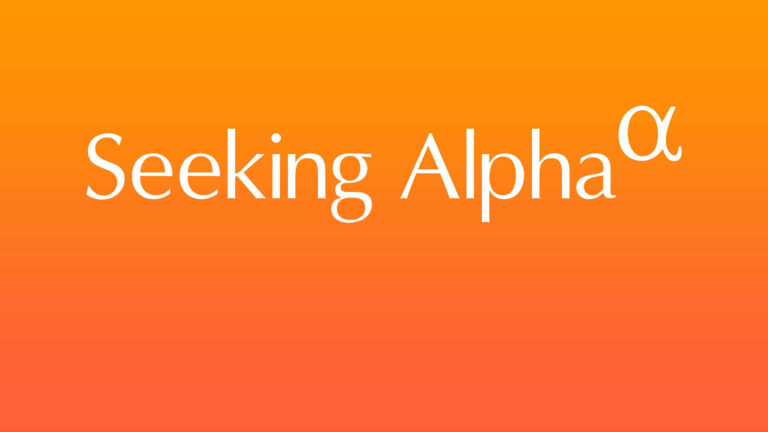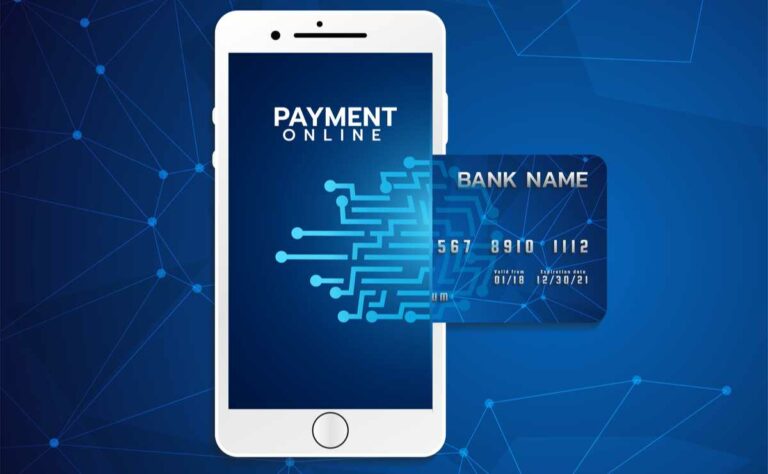10 Best Crowdfunding Websites to Raise Funds in 2025

Crowdfunding has evolved into a popular capital generation avenue. Great for businesses, personal, and public projects.
The platforms combine social networking with funding features. This creates a system that makes it easy to fund anything from your next business venture to boosting sales, developing a new product, and causes.
There are many crowdfunding sources out there. And while many cater to creative projects, others provide niche platforms that make them perfect for certain groups. So that their usefulness to you will depend on your funding goals.
This post looks at the best of them, picking out what makes each one stand out and how those unique features can be of help to you.
Crowdfunding Tips
While you are checking out the right crowdfunding platform to meet your needs, here are a few tips to keep in mind, as you may find them helpful along the way.
- You can raise money for projects, causes, businesses, life events, etc.
- Crowdfunding can fall into 4 types:
- Reward-based – like getting a product in return for funding.
- Debt-based – where the loan gets paid with interest.
- Equity-based – offers a share of the project or company, in return for the funding.
- Donations – you do not have to pay them back.
- It is wise to ask for funding early on in your project.
- Be as clear as possible on your objectives, when making your request.
- Don’t be shy to tell your full story. It can make a difference.
- Offer good incentives to your potential backers.
- Be accountable to the community.
- Study similar successful campaigns to be more effective.
The Best Crowdfunding Apps & Websites
| Name | Best For | Fees | Website |
|---|---|---|---|
| Kickstarter | Overall | 5% | kickstarter.com |
| Indiegogo | Overall | 5% | indiegogo.com |
| SeedInvest | Startups | 2% | seedinvest.com |
| Patreon | Content creators | 5-12% | patreon.com |
| Experiment | Scientific Research | 8% | experiment.com |
| GoFundME | Personal Donations | 0% | gofundme.com |
| Lending Club | Personal & Business Loans | 8-35% | lendingclub.com |
| Mightycause | Non-profits | $59/month | mightycause.com |
| Wefunder | Seed Funding | 7.5% | wefunder.com |
| Crowdfunder | UK & European Startups | 0-3% | crowdfunder.co.uk |
1. Kickstarter
- Best-For: Best overall
- Highlights: Wide range of projects, large & active community
- Cons: No non-profits, no equity
- Website: kickstarter.com
With over 200,000 projects funded and $6 billion raised as of August 2021, Kickstarter is a home for all kinds of creative projects. From the hip-hop trio De La Soul to best-selling authors, and creators of countless ingenious products, Kickstarter is open to all.
You can use it to raise money for art, crafts, film, music, technology, comics, games, publishing, photography, and similar creative endeavors you can think of. It is available on the web and as Apple and Android apps.
Kickstarter is also great for tech gadgets. From computer hardware to power systems, electric toothbrushes, and UV towel warmers, tech enthusiasts can find a home on the platform.
In addition to simply generating funds, Kickstarter is also designed to provide a community for your project. And this feature helps you to connect with those who share a similar passion to what you are doing, making them a part of your journey.
For downsides, you cannot find equity investors or fund non-profits through Kickstarter. So, if you are looking for equity-based investment opportunities or to start a cause, then it might not be for you.
You should also note that Kickstarter works on an all-or-nothing model. And this means you set your funding goal and a time limit. If you reach the goal, then you get the funds. Else, those who made pledges do not get charged.
The pledges also depend on the project. Some can pledge any amount without expecting a reward. While you can set minimum pledges, from where the backers will get a reward. The details are up to you, but keep in mind that Kickstarter takes a 5% cut when you reach your goal.
2. Indiegogo
- Best-For: Overall
- Highlights: Extensive features, liberal policies
- Cons: Less traffic than Kickstarter
- Website: indiegogo.com
Indiegogo is more liberal than Kickstarter, as it allows non-profits, community projects, and businesses. Else, you can use it for most of the other funding projects, as well.
It also lets you choose between fixed goals, which is an all-or-nothing model like Kickstarter, where you get no funding if you do not reach your goal. And flexible goals, which pay you, no matter what.
You can additionally use Indiegogo to raise equity for startups. And to continue raising money after your campaign ends. This feature is called InDemand and is available to both those that raised money on Indiegogo and elsewhere.
If you are making physical products, then there are also professional services to help you along the way. From product design to prototyping, production, licensing, marketing, shipping, and retailing.
For fees, the platform charges the same 5% for successful campaigns and 3% transaction costs as Kickstarter. It is available in 225 countries and has helped to bring over 800,000 ideas to life.
3. SeedInvest
- Best-For: Startups
- Highlights: Accredited investors, professional platform
- Cons: Strict vetting process
- Website: seedinvest.com
The name says it all. If you plan on going the crowdfunding route for a startup, then consider SeedInvest. This platform connects serious startups with individual investors.
SeedInvest will have to vet your company first before including it on the website. They look for early-stage and professionally run startups with high growth potential, and looking to raise capital using preferred equity or convertible notes.
The application process is detailed and can take time. Plus, SeedInvest will request all relevant information to make sure your offer is a good fit. If the application passes the screening committee, then you may be on your way to securing the fund you need.
You will find both accredited and non-accredited investors on the site. And a $500 minimum investment per investor. Of course, your terms could be different, and with a higher minimum investment per head, if your offer is worth it.
SeedInvest will also co-invest $200,000 per successful deal. It has helped to successfully close over 235 funding rounds, with an average of $975,000 per round and a $20 million top record.
4. Patreon
- Best-For: Creative professionals
- Highlights: Connect with paying fans, the app is available
- Cons: Relatively high fees
- Website: patreon.com
Content creators of all kinds can use the Patreon platform to monetize their content while maintaining their artistic freedom. This includes video and game creators, communities, writers, non-profits, and so on.
The platform hosts over 200,000 creators and 6 million patrons, who support them monthly. By connecting directly with fans, an artist can continue doing the work he loves without needing to chase paychecks.
Patreon was co-founded by a YouTube musician, Jack Conte in 2013. And has earned over $2 billion for content creators to date, who otherwise would have mostly remained struggling artists.
Membership for creators is available in four plans. You start with a free plan, then start paying once you start earning. The paid options include Lite for 5% of earnings, Pro with more features for 8%, and Premium with the most features for 12%.
All the plans include business tools to help you build your subscriber base, mobile apps, workshops, and payment processing. Your fans can pay whatever they like and you offer them exclusive content in return.
5. Experiment
- Best-For: Scientific research
- Highlights: Scientific impact, 46.9% success rate
- Cons: Strict guidelines, high fees
- Website: experiment.com
Scientists and other curious minds, struggling to find grants for their research work, can turn to Experiment.com, the online platform for crowdfunding scientific research.
Here, over 1.1 million members have helped to fund about a thousand projects to date. All you need is a verifiable scientific research topic that you can publicly share its results when you are done. The reward for the backers is access to these results.
All submissions are carefully examined for clarity, accuracy, and feasibility before getting published on the platform. And they also run on an all-or-nothing approach. Meaning the backers will not get charged if your campaign does not reach 100% of your funding goal.
Categories on the site range from biology to anthropology, mathematics, engineering, economics, computer science, and so on. The Experiment charges an 8% fee for successful campaigns.
6. GoFundME
- Best-For: Personal projects, donations
- Highlights: Vast numbers of donors, no payback
- Cons: Not ideal for serious business funding
- Website: gofundme.com
With over $10 billion raised since 2010, GoFundMe is probably the most popular crowdfunding website for non-technical folk. And with good reason.
GoFundMe is the #1 online destination for all types of personal fundraising. Whether you need money for the family, medical reasons, emergencies, memorials, volunteer services, the environment, wildlife conservation, and so on.
There is hardly another platform with so many donors like GoFundMe. And while you may post business requests on the site, most of the successful campaigns here are heart-warming with emotionally-loaded stories.
So, if you have a business or charity that can benefit from public goodwill, then GoFundMe is worth a try. The platform includes all the tools you need for free and even offers fundraising solutions for established charity organizations.
GoFundMe is free to use. They do not levy charges for using the platform. They only subtract standard payment processing fees of about 1.9%.
7. Lending Club
- Best-For: Personal and business loans, straightforward debt
- Highlights: Easy to use, over $60 billion funded, plenty of members
- Cons: Needs credit check
- Website: lendingclub.com
The Lending Club combines traditional loans with crowdfunding. Your loan request is processed and if you accept the terms, then members fund it.
This system lets you borrow up to $40,000 personal loans and up to $500,000 business loans. The only condition is they will conduct a credit check.
If you are good to go, then the system makes you an offer, depending on your credit history and how much you want to borrow. This can mean effective APRs from 8 to 35.8%.
Still, it can be a good option, depending on your needs. You can use personal loans for practically whatever you like. But the business loans come with more stringent qualifying conditions.
8. Mightycause
- Best-For: Non-profits & causes
- Highlights: Extensive features, complete management
- Cons: No free account
- Website: hmightycause.com
Designed to serve non-profits specifically, Mightycause is a unique offering run by a small but mighty team. The company is employee-owned, has been in business since 2006, and has helped over 150,000 causes.
You can use Mightycause to raise money for all causes, from non-profits to schools, events, giving days, and for personal reasons or in someone’s honor.
The system provides everything you need from unlimited campaigns to website donation widgets, offline management, donor data management, real-time reports, templates, and even a fully-featured CRM for Advanced accounts.
Mightycause offers two accounts: Essential for $59 per month and Advanced for $99 per month. There is no free account here and that is a downside, but the tools are worth it if you need to manage multiple campaigns at a go.
The Advanced account even comes with data integration with over 1,000 apps. And this includes Slack, Salesforce, Mailchimp, and lots more. Even more features include recurring donations, volunteer management, and so on.
9. Wefunder
- Best-For: Seed Funding
- Highlights: Early stage funding, tech-friendly investors
- Cons: 7.5% fees
- Website: wefunder.com
Wefunder is a crowdfunding platform for seed-stage startups. It allows anyone to invest $100 and above into any venture of their choice. The investors on this site know how risky some ideas can be, but they are still ready to give things a shot.
So, if you have got a good idea or even a crazy one, then Wefunder might be for you. Investors on this platform have funded everything from a bionic pancreas for fighting Type 1 diabetes to the Terrafugia flying car.
Y Combinator startups are also available for investment on Wefunder. To date, over 1,500 founders have found over $300 million in funding on the platform. And moved on to attract over $5 billion in venture capital down the line.
Wefunder makes it easy to start raising funds in just 15 minutes, but they charge a 7.5% fee for successful funds. All other costs included.
10. Crowdfunder
- Best-For: European Startups
- Highlights: UK based, variable fee structure
- Cons: All or nothing campaigns
- Website: crowdfunder.co.uk
Startups with a European base can consider Crowdfunder as it is a UK platform with lots of local investors.
Else, the website works like most other crowdfunding platforms. It offers categories from business to charity, sports, causes, and community projects.
It works on an all-or-nothing structure, which means you do not get the funds if you do not meet your funding goals. And this can be inappropriate for some projects.
For fees, it has a variable structure, the charities pay 0% platform fees, while others pay 3%. Everyone still pays transaction fees though.
Conclusion
Reaching the end of this crowdfunding websites & apps list, you must have seen the different and exciting ways to raise capital directly from the masses.
Although the funding and willing backers are out there to support most of your requests. You should still take a little more time to study and polish your proposal. And to make it more attractive.





